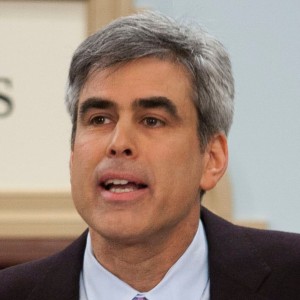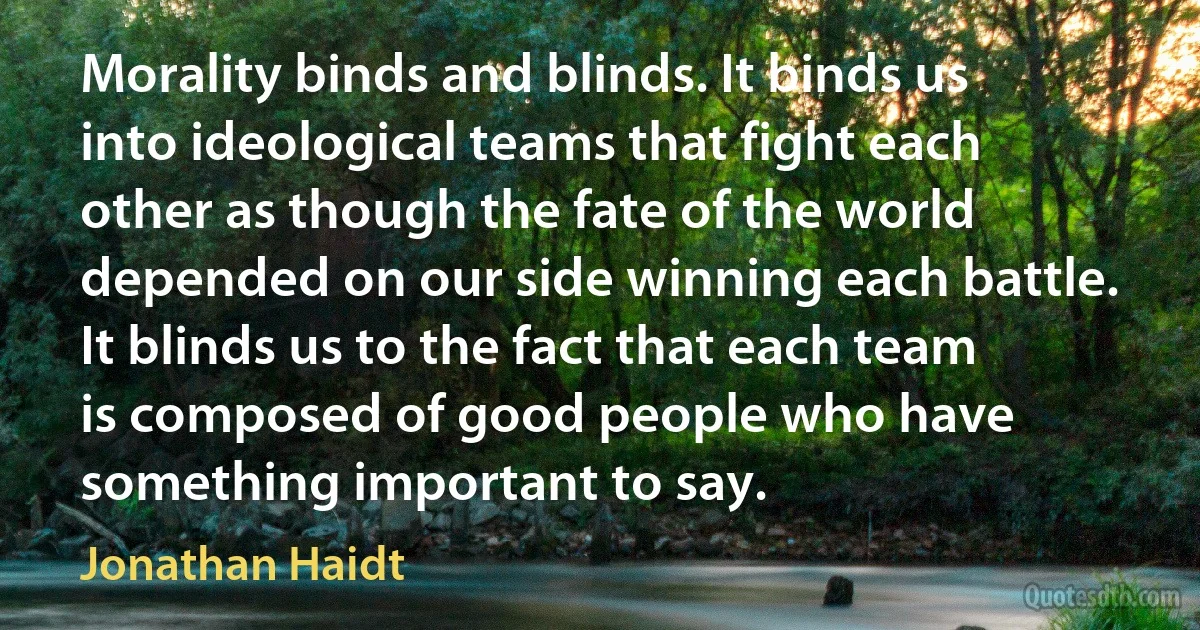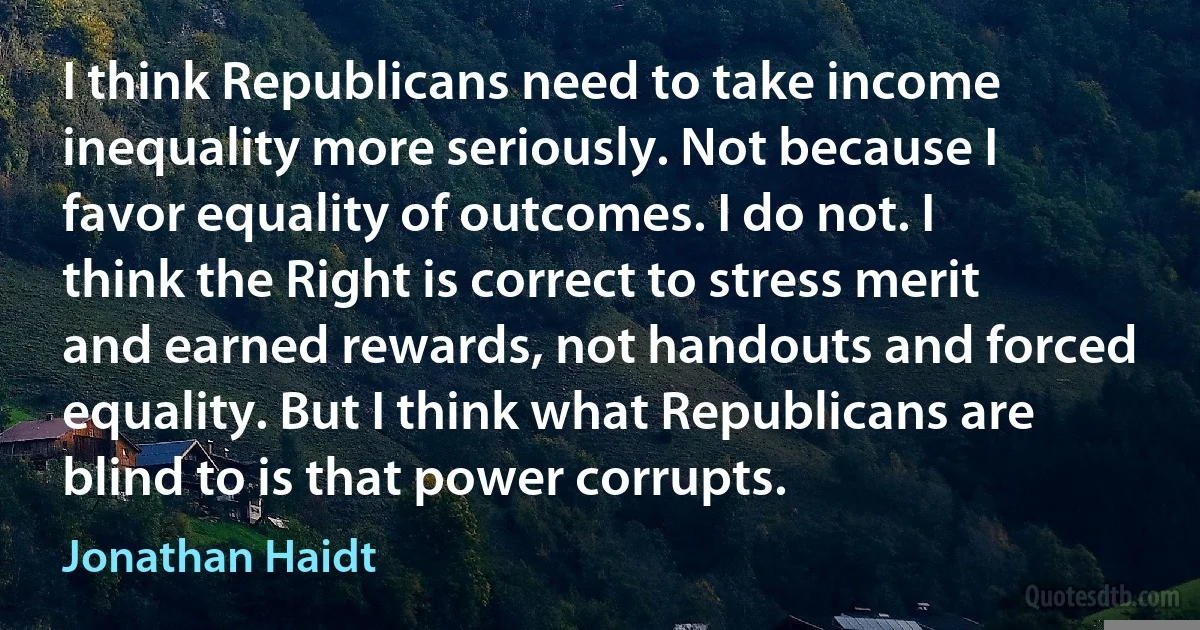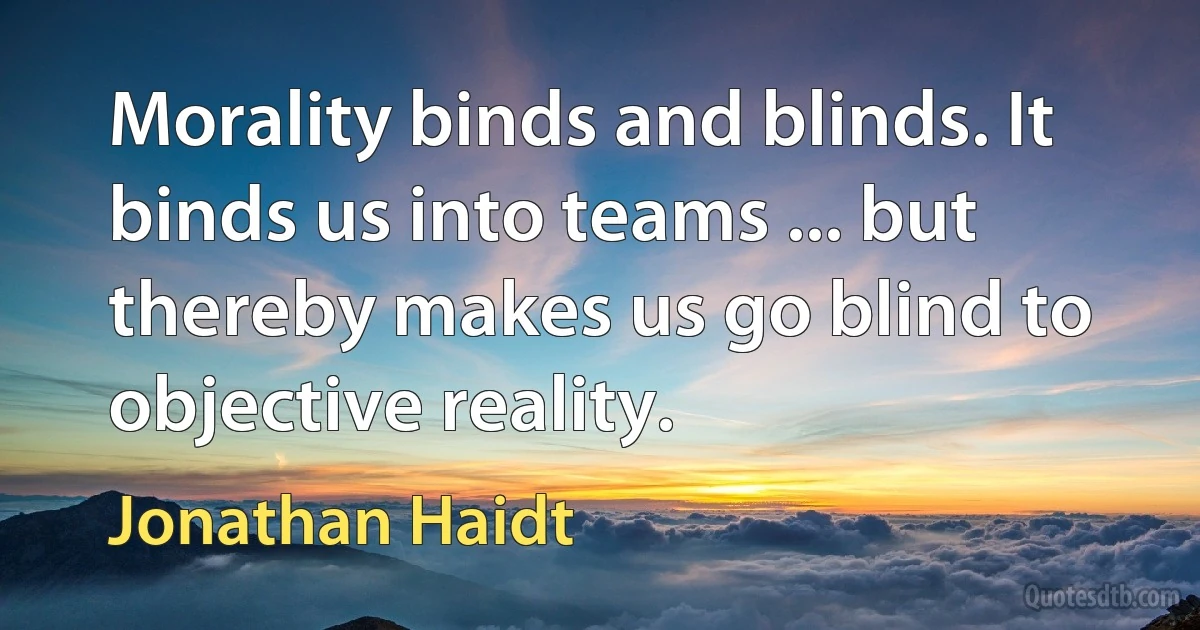Jonathan Haidt quotes
Gossip and reputation make sure that what comes around - a person who is cruel will find that the others are cruel hack to him, and a person who is kind will find others are kind in return. Gossip paired with reciprocity allow karma to work here on earth, not in the next life. As long as everyone plays tit-for-tat augmented by gratitude, vengeance, and gossip, the whole system should work beautifully.

Jonathan Haidt
It really is a fact that liberals are much higher than conservatives on a major personality trait called 'openness to experience.' People who are high on openness to experience just crave novelty, variety, diversity, new ideas, travel. People low on it like things that are familiar, that are safe and dependable.

Jonathan Haidt
I think we went through - in America, at least, we went through a period in the '60s and '70s when the education establishment became extremely liberal, and part of that is a flirtation with relativism. And a resistance - it's horrible to think of - of adults telling kids what's right and wrong. What a terrible thing. That's oppression. And so we created these sort of value-free spaces, which conveys a value, which is that there's no right or wrong, everyone decides for themselves. Uh, everyone's opinion is equal. You should say your opinion and then you get a lot of incivility. What I would like to see is a revamped civics curriculum where we teach very explicitly the long tradition of left-right. Um, we teach what each side is. You can't say right about it, that's my language. But, um, you teach what each side is concerned about. You know, very much like the line here. Uh, both are essential. One without the other creates an unbalanced American civic order.

Jonathan Haidt
I know this is the question period, but there's a quote here which is just so relevant. I hope I can - I hope I can read it. It's from an article by, uh, Yossi Klein Halevi on Pesach Jews versus Purim Jews. So he talks about these - there's these two threads, these two strands among - among - among Jews in - actually, there's more in Israel. But it's here, too. So he - I just love this, and it fits so well with - with - with The Righteous Mind. He says, uh, Jewish history speaks to our generation in the voice of two Biblical commands to remember.

Jonathan Haidt
So, we've reached the state that George Will described. He said there's a certain kind of liberal that wants diversity in everything, except thought. And so, we do need certain kinds of diversity. But the key to remember is that, diversity by its very nature is divisive, and so, what's the function of your group? If your group needs cohesion, you don't want diversity. If your group needs good, clear thinking and you want people to challenge your prejudices, then you need it. So in the academic world, we need that kind of diversity, and we don't have it.

Jonathan Haidt
And so, uh, uh, a wonderful book, um, American Grace by, uh, Putnam and Campbell, um, uh, is the ultimate authority on this. What they find is that, um, it doesn't matter what religion you are, and it doesn't matter what you believe, if you are part of a religious community, then on average, you're a better citizen, you give more to charity. Religion does bring out the good in people. Now, secular people can be perfectly good, too, but on average, they give less and they give less of their time. So, I'd like to think that I simply, as a secular atheist scientist, followed the evidence, and it showed me that I was wrong in thinking that religion was evil.

Jonathan Haidt
In real life, however, you don't react to what someone did; you react only to what you think she did, and the gap between action and perception is bridged by the art of impression management. If life itself is but what you deem it, then why not focus your efforts on persuading others to believe that you are a virtuous and trustworthy cooperator?

Jonathan Haidt
Jonathan Haidt
 Occupation: American Psychologist
Occupation: American Psychologist
Born: October 19, 1963
Quotes count: 64
Wikipedia: Jonathan Haidt












